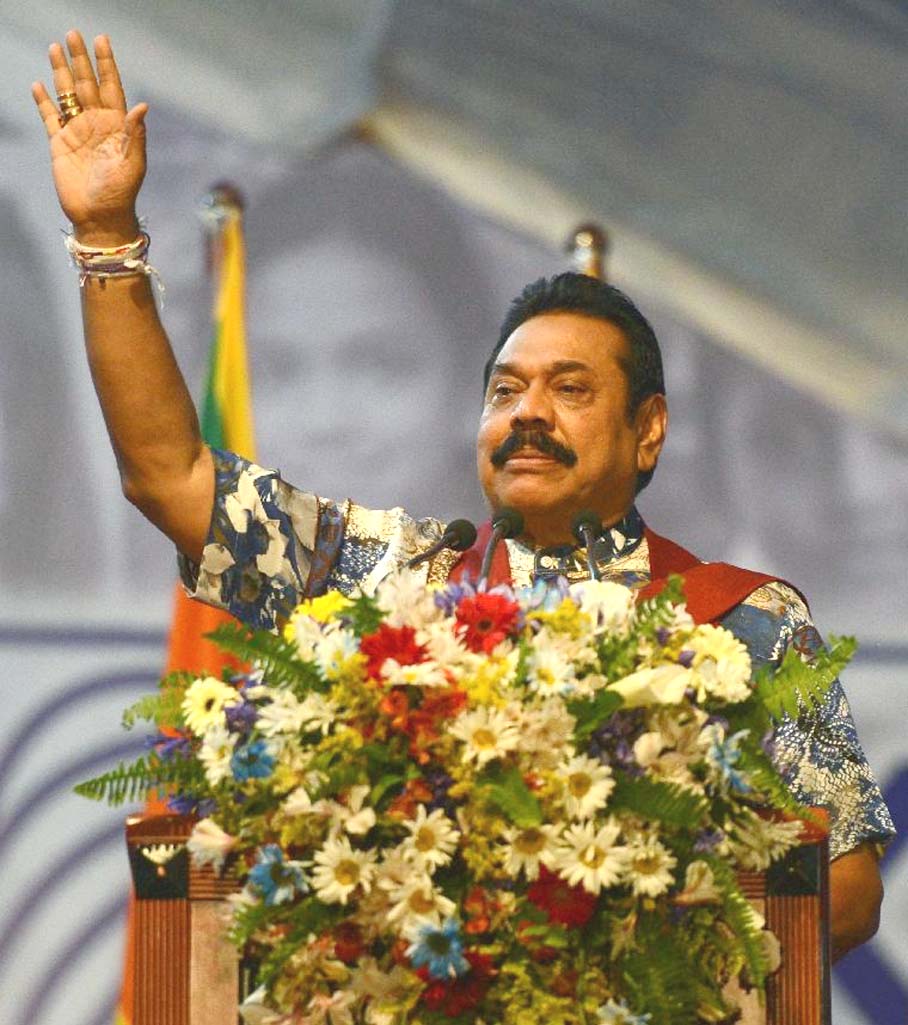
AFP, Colombo :Sri Lanka’s former president Mahinda Rajapakse announced Wednesday he will lead an opposition faction in upcoming general elections, months after being defeated at presidential polls following a decade in power.Rajapakse, an autocratic ruler accused of siphoning off millions during his tenure, said he would spearhead a faction at parliamentary elections in August, but stopped short of saying whether he would contest a seat himself.”I have no right to refuse the people’s call,” Rajapakse said at his home in Medamulana village in his southern stronghold of Hambantota.”Therefore we must contest the upcoming general election,” he told rallying supporters, flanked by a handful of his former ministers.Rajapakse appealed to “patriots” in all political parties to form a new unity government, eight months after his defeat by now president Maithripala Sirisena at the January polls.Sirisena, who served in Rajapakse’s cabinet before quitting to stand against his one-time mentor, won the polls on a pledge of ethnic reconciliation and sweeping reforms including rolling back the president’s powers.He called a general election last month to strengthen his numbers in parliament, where his promised reforms have faced resistance from lawmakers loyal to Rajapakse.The former president said he and his loyalists would challenge the ruling United National Party which backed Sirisena at the January poll.Rajapakse had earlier told close aides that he wanted to be the prime ministerial candidate at the August 18 election.But Sirisena made clear in a statement on Tuesday night that he would refuse Rajapakse’s request to be the candidate for the main opposition United People’s Freedom Alliance (UPFA).Sirisena challenged Rajapakse in January after breaking away from their UPFA, but the president has returned to the party since his victory and taken over its leadership.Rajapakse, an ethnic Sinhalese, remains popular among big sections of the island’s largest community for overseeing the defeat of the Tamil Tiger separatist rebels in 2009.He was however shunned by many world leaders after refusing to probe claims that tens of thousands of civilians died in the final months of the 37-year conflict.

